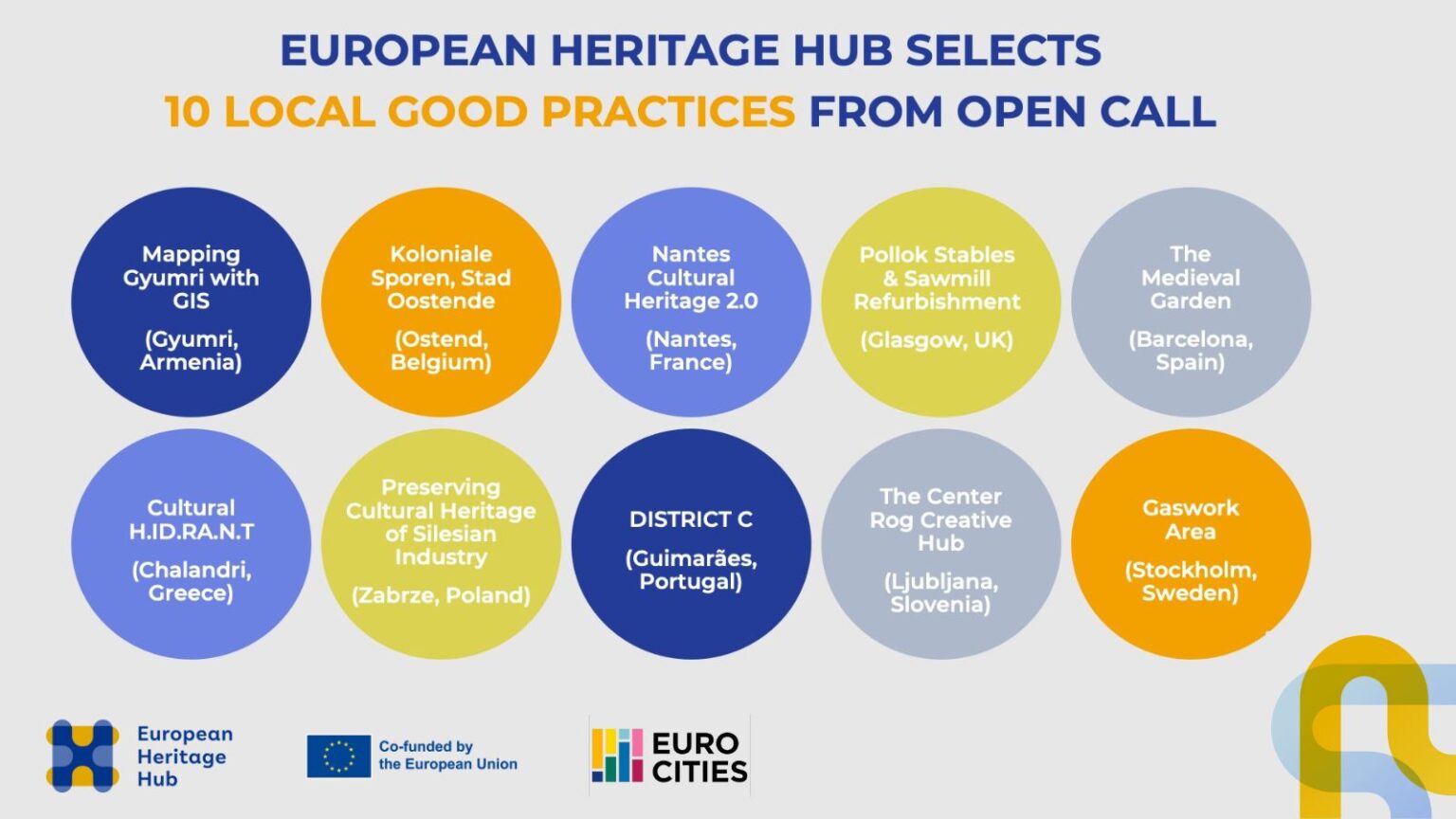The European Heritage Hub has selected 10 initiatives aimed at identifying exemplary local good practices in the field of cultural heritage that contribute to the green, digital, and social transformation of our society. Among the selected initiatives is the project of the Coal Mining Museum in Zabrze, Poland.
The call received 40 applications from 33 cities/regions across Europe. The selection criteria evaluated the alignment of submitted practices with the overarching themes of the European Heritage Hub project, giving particular attention to the triple transformation concept and the innovative character of the initiatives.
The project titled ‘Preservation of the Cultural Heritage of Silesian Industry via the Creation of Digital Artifacts’ realised by the Museum of Coal Mining in Zabrze, is the only one selected from Central and Eastern Europe.

The Coal Mining Museum in Zabrze, Upper Silesia, established in 1981, is the institution with an extensive collection related to the history of mining, mining technology, and culture, located in the building of the former local administrative unit (Poviat Starosty) dating back to 1875. Its collections of industrial technology include hammers, picks and breathing apparatus as well as large-size machinery used underground. The museum seeks new technological solutions to popularize the post-industrial heritage. The goal is to use modern tools which would familiarise the visitors with the region, its history and the places which contributed to the development of the region.
The Museum is a pioneer in the field of preserving and sharing mining heritage using modern technologies. The laser scanning and photogrammetry technologies allow for accurate documentation of objects and museum exhibits and access to them virtually. The 3D scanning process allows the creation of three-dimensional virtual models that retain every detail of the object. These models constitute a valuable source of information and materials for further work on digitalisation.
Preservation of the Cultural Heritage of Silesian Industry via the Creation of Digital Artifacts
As entire Europe sets an objective to be carbon neutral by 2050, regions such as the Silesian Metropolitan area which historically developed around the excavation of coal, face a great effort to make the objective a reality, and preserve regional identity and legacy. As a key regional stakeholder responsible for the digitalisation of the immensely valuable historical sites The Coal Mining Museum in Zabrze also lay a fundament towards the future of those sites.
The laser scans performed on sites enable visionary architects to repurpose those spaces and showcase them to city officials, commercial stakeholders, and the general public, triggering a key discussion. Based on those, the project use cutting-edge technologies used in video games and the film industry such as Unreal Engine to create breathtaking visions of both the past and the future. The Museum is no longer a lone keeper of history, but an enabler and a guardian of the post-industrial transformation.
You can find all the other projects here.
“The selected practices highlight the pivotal role of cultural heritage in driving positive change and making a valuable impact. They serve as inspiring responses to local challenges, with the potential to influence policy solutions and provide transferable case studies for other regions. We are extremely pleased, alongside our project partners, to emphasise cities’ impact through the European Heritage Hub project. The green, digital, and social transition can only accelerate through multi-level collaboration”, stated Julie Hervé, Head of Culture at Eurocities, Co-beneficiary partner of the European Heritage Hub.
Each selected initiative will be showcased in a series of dedicated articles to be published over the coming months. A variety of case studies, extending beyond the selected 10, will also be featured in four thematic ‘sharing local stories’ webinars. Cities whose good practices were selected also get the opportunity to host a peer learning visit with a delegation of 20 participants funded by the project.
The European Heritage Hub utilises the concept of ‘Triple Transformation’ as an overarching theme for all its activities, from networking and capacity building to policy and advocacy efforts. The triple transformation concept is meant to describe transformative trajectories that pursue the dual goals of living within planetary boundaries and strengthening sustainable development, fully reaping the opportunities offered by new technologies while paying close attention to equity and well-being for all.